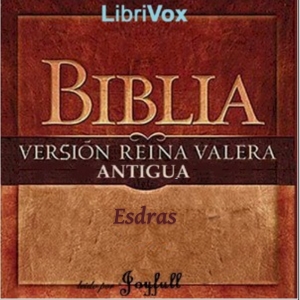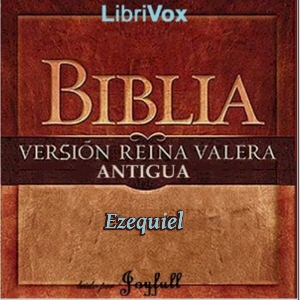The Darby Bible consists of a translation of the New Testament by John Nelson Darby, originally published in 1867, and a translation of the Old Testament, included in later editions of the text, completed by Darby's students after his death. - Summary by Aaron Hultstrand
6 episodes

現在稱為《和合本》的聖經,初稱《官話和合本》,用了清朝的慣用稱呼「官話」,至清末民國時期「官話」逐漸改稱「國語」,故此改名《國語和合本。因著《國語和合本》大為流行,成為教會唯一在用的和合譯本,現今簡稱為《和合本》。
上海在華傳教士大會中決議,翻譯用的原文底本是英國出版的《修訂版聖經》(Revised Version) 所用的原文底本。Revised Version (1885)又稱《英國修訂本》(English Revised Version),其新約希臘文底本,是當時最新的 Westcott and Hort (1881)。不過,據尤思德博士的研究,《和合本》的譯者在參考Westcott and Hort (1881)之餘,有時卻用回古老的《公認經文》(Textus Receptus) ,即1611年出版的《英王詹姆斯譯本》(King James Version) 的底本。 The Chinese Union Version (CUV) (Chinese: 和合本; pinyin: héhéběn; Wade–Giles: ho2-ho2-pen3; literally: "harmonized/united version") is the predominant translation of the Bible into Chinese used by Chinese Protestants, first published in 1919. The text is now available online. The CUV was translated by a panel with members from many different Protestant denominations, using the English Revised Version as a basis and original manuscripts for crosschecking. Work on the CUV began in 1890 and originally, three versions of the CUV were planned—two classical Chinese versions and a vernacular Mandarin Chinese version. The CUV was completed in 1919, with one amalgamated classical Chinese translation and one vernacular Mandarin translation. With the onset of May Fourth Movement, and the associated New Culture Movement, the CUV is the second translated work to be published in Vernacular Mandarin Chinese, after the first vernacular Chinese Bible, the Peking Committee Bible.
The CUV in use today is the vernacular Mandarin Chinese version, published in two slightly different editions—the Shen Edition (神版) and the Shangti Edition (上帝版)--differing in the way the word “God” is translated.
21 episodes
The Darby Bible consists of a translation of the New Testament by John Nelson Darby, originally published in 1867, and a translation of the Old Testament, included in later editions of the text, completed by Darby's students after his death. The text for this recording comes from the second edition of the Darby Bible. - Summary by Aaron Hultstrand
6 episodes

El segundo libro de Samuel relata el reinado de David como rey de Israel (alrededor de 1010-970 a. C.) Como Dios había prometido a Abraham, durante el reinado de David, las fronteras de Israel se extendieron aproximadamente desde Egipto hasta el Eufrates. David tuvo muchos éxitos, pero después de su pecado contra Bathsheba y Uriah (capítulo 11), tanto su reino como su propia familia cayeron en el caos. Su hijo Absalón lideró una sangrienta rebelión contra él. Sin embargo, David, autor de muchos de los Salmos, fue un hombre conforme al corazón de Dios (1 Samuel 13:14), un modelo de profunda y sincera oración y arrepentimiento. El pacto Davídico del capítulo 7 establece el gobierno eterno de la línea de David, con su cumplimiento final en la venida de su descendiente, Jesucristo. Se desconoce el nombre del autor de este libro.
=============================================================================
English translation:
The second book of Samuel tells of David's reign as king of Israel (around 1010-970 B.C). As God had promised to Abraham, during David's reign, Israel's borders extended approximately from Egypt to the Euphrates. David had many successes, but after his sin against Bathsheba and Uriah (chapter 11), both his kingdom and his own family fell into chaos. His son Absalom led a bloody rebellion against him. However, David, author of many of the Psalms, was a man after God’s own heart, (1 Samuel 13:14), a model of deep and sincere prayer and repentance. The Davidic covenant of chapter 7 establishes the eternal rule of David's line, with its final fulfillment in the coming of his descendant, Jesus Christ. The name of the author of this book is unknown.
- Summary by Claudia Barrett
24 episodes
The Darby Bible consists of a translation of the New Testament by John Nelson Darby, originally published in 1867, and a translation of the Old Testament, included in later editions of the text, completed by Darby's students after his death. The text for this recording comes from the second edition of the Darby Bible. - Summary by Aaron Hultstrand
4 episodes
《聖經和合本》(Chinese Union Version,簡稱和合本;今指國語和合本(Kuoyü Union Version),舊稱官話和合本(Mandarin Union Version)),是今日華語基督新教教會最普遍使用的《聖經》譯本,問世一百年以來,一直是華人教會的權威譯本,是眾多信徒心愛的聖經。此譯本的出版源自1890年在上海舉行的傳教士大會,會中各差會派代表成立了三個委員會,各自負責翻譯官話(白話文)、淺文理(淺文言)、深文理(文言文)譯本。1904年,《淺文理和合譯本》(Easy Wenli Union Version)出版《新約》。1906年,《深文理和合譯本》(High Wenli Union Version)亦出版《新約》。1907年,傳教士大會計劃只譯一部文理譯本,於1919年出版《文理和合譯本》(Wenli Union Version)。1906年,官話的翻譯工作完成了《新約》;1919年,官話《舊約》的翻譯工作完成。在1919年正式出版時,官話《聖經》譯本名為《官話和合譯本》,從此就成了現今大多數華語教會採用的和合本《聖經》。
「詩篇」一詞採自希臘文《七十士譯本》所用的桑末(Psal-moi′),所指的是用樂器伴奏的歌。這個名字也曾屢次在基督教希臘文聖經中出現,例如在《路加福音》第20章第42節及《使徒行傳》第1章第20節。詩篇乃是用來讚頌、敬拜上帝的神聖詩歌。 主題:敬虔之人藉著讚美、禱告、並歡騰的歌唱,尋求並接觸神,所表達的情緒、感覺、感想和經歷。【摘自維基百科】
中文聖經和合本神版舊約詩篇。全篇共五卷合計150篇.
卷一【第一篇到第四十一篇】,
卷二【第四十二篇到第七十二篇】,
卷三【第七十三篇到第八十九篇】,
卷四【第九十篇到第一百零六篇】,
卷五【第一百零七篇到第一百五十篇】
9 episodes

El libro de Esdras comienza donde termina 2 Crónicas. Según lo profetizado por Isaías, el rey Ciro de Persia envió a los exiliados, dirigidos por Zorobabel, de regreso a Jerusalén en 538 b.c. (Persia había derrotado a Babilonia en 539). A pesar de la oposición de los habitantes no judíos de Judea, y luego de que los profetas, Hageo y Zacarías los alentaron, el templo fue reconstruido en 515. Luego, en 458, Ezra lideró la segunda de las tres oleadas de exiliados que regresaban. Cuando Esdras llegó, la gente había caído nuevamente en pecado. Esdras predicó la Palabra de Dios y la gente se arrepintió. Esdras tuvo éxito porque la mano de Dios estaba sobre él. Este libro, tal vez escrito por el mismo Esdras, muestra el poder de Dios y la fidelidad de Su pacto, ablandando incluso el corazón de reyes paganos para lograr Sus propósitos redentores.
English Translation:
The book of Ezra begins where 2 Chronicles ends. As prophesied by Isaiah, King Cyrus of Persia sent the exiles, led by Zerubbabel, back to Jerusalem in 538 b.c. (Persia had defeated Babylon in 539). Despite the opposition of the non-Jewish inhabitants of Judea, and after the prophets, Haggai and Zechariah encouraged them, the temple was rebuilt in 515. Then, in 458, Ezra led the second of the three waves of returning exiles . When Ezra arrived, the people had fallen back into sin. Ezra preached the Word of God and the people repented. Ezra was successful because the hand of God was upon him. This book, perhaps written by Ezra himself, shows the power of God and the faithfulness of His covenant, softening even the hearts of pagan kings to achieve His redemptive purposes. - Summary by Claudia R Barrett
10 episodes

Eclesiastés o El Predicador contiene las reflexiones de un anciano, el "Predicador", cuando considera la cuestión del significado de la vida. El predicador mira hacia atrás y ve la futilidad ("vanidad") de perseguir incluso las cosas buenas que esta vida puede ofrecer, incluyendo la sabiduría, el trabajo, el placer y la riqueza. Aún cuando tales cosas satisfacen por un tiempo, la muerte seguramente terminará con esa satisfacción. De hecho, el juicio de Dios sobre Adán por su pecado (Génesis 3:17-19) hace eco a través del libro. Sin embargo, la persona que vive en el temor del Señor puede disfrutar de los buenos dones de Dios. El predicador exhorta a los jóvenes a recordar a su Creador cuando aún tienen sus vidas enteras por delante (12:1). Tradicionalmente, los intérpretes de Eclesiastés han identificado al "Predicador" a quien también se le llama "el hijo de David, rey en Jerusalén" (1:1) como Salomón. Se estima que fue escrito durante el décimo siglo antes de Cristo.English translation:Ecclesiastes or The Preacher contains the reflections of an elder, the "Preacher", when he considers the question of the meaning of life. The preacher looks back and sees the futility ("vanity") of pursuing even the good things this life can offer, including wisdom, work, pleasure and wealth. Even when such things satisfy for a time, death will surely end with that satisfaction. In fact, God's judgment on Adam for his sin (Genesis 3:17-19) echoes through the book. However, the person who lives in the fear of the Lord can enjoy the good gifts of God. The preacher exhorts the young to remember their Creator when they still have their whole lives ahead (12:1). Traditionally, the interpreters of Ecclesiastes have identified the "Preacher" who is also called "the son of David, king in Jerusalem" (1:1) as Solomon. It is estimated that it was written during the tenth century before Christ. Summary by Claudia R Barrett.
12 episodes

El libro de Lamentaciones se compone de cinco poemas, cada uno de los cuales es una expresión de dolor por la caída de Jerusalén. Como en los funerales, estos lamentos están destinados a llorar una pérdida. En este caso, la pérdida de una nación. La segunda mitad del capítulo 3 implica que el propósito detrás de las representaciones gráficas de Lamentaciones de dolor y sufrimiento era producir esperanza en el Dios cuya compasión es "nueva cada mañana", y cuya fidelidad es grande incluso para un pueblo que ha sido condenado por su propia infidelidad. Las lamentaciones probablemente fueron escritas poco después de la caída de Jerusalén en 586 a. C. El autor, aunque no está identificado en el libro, puede ser el profeta Jeremías, de quien se dice que "expresó un lamento por Josías" (2 Crónicas 35:25).
---- English Translation:
The book of Lamentations is composed of five poems, each of which is an expression of pain for the fall of Jerusalem. Like an eulogy at a funeral, these laments are meant to mourn a loss. In this case, the loss of a nation. The second half of chapter 3 implies that the purpose behind the graphic representations of Lamentations of pain and suffering was to produce hope in the God whose compassion is "new every morning", and whose faithfulness is great even for a people who have been condemned by their own infidelity The lamentations were probably written shortly after the fall of Jerusalem in 586 a. C. The author, although not identified in the book, may be the prophet Jeremiah, who is said to have "expressed a lament for Josiah" (2 Chronicles 35:25).
- Summary by Claudia R Barrett
5 episodes

¡Este es un fascinante libro de profecía! Ezequiel, profeta y sacerdote, fue exiliado a Babilonia en 597 antes de Cristo. Su ministerio se extendió por al menos veintitrés años. El libro comienza con su primera visión dramática de la "apariencia" del Señor mismo. Ezequiel estaba muy consciente de la presencia y el poder de Dios en los asuntos humanos. Se dirigió a los exiliados y al pueblo que se había ido en Judá con mensajes de advertencia y juicio, prediciendo la caída de Jerusalén. Después de su caída, en 586, Ezequiel profetizó esperanza y seguridad para el pueblo de Judá, que entonces había perdido el enfoque del pacto de Dios, el templo en Jerusalén. Su visión del valle de los huesos secos en el cap. 37 es un cuadro clásico de la capacidad de Dios para infundir nueva vida a aquellos que están espiritualmente muertos!
English Translation:
This is a fascinating book of prophecy! Ezekiel, a prophet and priest, was exiled to Babylon in 597 B.C. His ministry extended for at least twenty-three years. The book begins with his first dramatic vision of the "likeness" of the Lord Himself. Ezekiel was very aware of the presence and power of God in human affairs. He addressed the exiles and the people left in Judah with messages of warning and judgment, predicting the fall of Jerusalem. After his fall in 586, Ezekiel prophesied hope and security for the people of Judah, who had then lost the focus of God's covenant, the temple in Jerusalem. His vision of the valley of dry bones in chapter 37 is a classic picture of God's ability to breathe new life into those who are spiritually dead!
- Summary by Claudia R Barrett
48 episodes

¿Te fascina la historia? Entonces, este libro ¡te encantará!
En el Primer Libro de los Reyes encontrarás historias acerca de la sabiduría del Rey Salomón, la Reina de Saba, el poder sobrenatural de Dios manifestado a través del profeta Elías, Jezabel, la reina malvada y mucho más. El Primer Libro de los Reyes comienza con la muerte del rey David (alrededor del año 970 aC) y el magnífico reinado de su hijo, Salomón, quien escribió gran parte de la literatura sobre sabiduría de Israel. La infidelidad de Salomón más adelante en su vida preparó el escenario para la apostasía general entre el pueblo de Israel. Las duras políticas de su hijo Roboam condujeron a la revuelta de las tribus del norte bajo el mando Jeroboam I y la división de Israel. Las tribus del norte llevabaron posteriormente el nombre de Israel, mientras que las tribus del sur se llamarían Judá. El Primer Libro de los Reyes describe la construcción del templo en Jerusalén y la importancia de la adoración apropiada. La fidelidad de Dios a Su pueblo se muestra cuando envió profetas, especialmente a Elías, a advertirles que no sirvieran a otros dioses. Se desconoce el nombre del autor.
English Translation:
Do you love History? You’re in for a treat!
In the First Book of Kings you will find stories about the wisdom of King Solomon, the Queen of Sheba, the supernatural power of God manifested through the prophet Elijah, Jezebel, the evil queen, and much more. The First Book of the Kings begins with the death of King David (circa 970 BC) and the magnificent reign of his son, Solomon, who wrote much of the wisdom literature of Israel. Solomon's unfaithfulness later in his life set the stage for general apostasy among the people of Israel. The harsh policies of his son Rehoboam led to the revolt of the northern tribes under the command of Jeroboam I, and the division of Israel. The tribes of the north later took the name of Israel, whereas the tribes of the south would be called Judah. The First Book of the Kings describes the construction of the temple in Jerusalem and the importance of proper worship. God's faithfulness to His people is shown when He sent prophets, especially Elijah, to warn them not to serve other gods. The name of the author is unknown.
- Summary by Claudia Barrett
22 episodes

El Segundo libro de los Reyes continúa la saga de desobediencia comenzada en el Primer libro de los Reyes, alrededor del 850 a. C. con la conclusión del ministerio profético de Elías en Israel y el comienzo de la obra de su sucesor, Eliseo. Israel avanzó en espiral hacia abajo en su infidelidad, finalmente fue derrotado y dispersado por los asirios en 722. Judá, el reino del sur, tenía varios reyes que confiaban en Dios e intentaron hacer reformas. Pero después de muchos años de las advertencias de Dios a través de Isaías y otros profetas, los pecados de Judá fueron castigados y fue conquistada por Babilonia alrededor de 605 y finalmente la caída de Jerusalén en 586. El pueblo fue exiliado a Babilonia durante setenta años, tal como lo profetizó Jeremías. Dios se mantuvo fiel a su pacto a pesar de la infidelidad de Su pueblo. El autor de 2 Reyes es desconocido.
English Translation:
Second Kings continues the saga of disobedience begun in First Kings, around 850 BC. C. with the conclusion of Elijah's prophetic ministry in Israel and the beginning of the work of his successor, Elisha. Israel spiraled down in its infidelity, was finally defeated and dispersed by the Assyrians in 722. Judah, the southern kingdom, had several kings who trusted in God and tried to make reforms. But after many years of God's warnings through Isaiah and other prophets, Judah's sins were punished by the conquest of Babylon around 605 and finally in the fall of Jerusalem in 586. The people were exiled to Babylon for seventy years, as Jeremiah prophesied. God remained faithful to His covenant despite the infidelity of His people. The author of 2 Kings is unknown.
25 episodes

El título "Números" proviene de los dos censos que son característicos de este libro. Sin embargo, el título hebreo "en el desierto" es más descriptivo del libro. Números cuenta cómo el pueblo de Dios viajó desde el Monte Sinaí hasta la frontera de la Tierra Prometida. Pero cuando se negaron a tomar posesión de la Tierra, Dios los hizo vagar por el desierto durante casi cuarenta años. A través del libro, Dios es visto como un Dios Santo que no puede permitir la desobediencia, pero quien al mismo tiempo guarda fielmente su pacto y satisface pacientemente las necesidades de su pueblo. Números termina con una nueva generación preparándose para la conquista de Canaán. La mayoría de los judíos y cristianos reconocen a Moisés como el autor de este libro, y se estima que lo escribió durante el último año de su vida (alrededor de 1405 a. C.)English translation:The title “numbers” comes from the two censuses that are feature of this book. However the Hebrew title “in the Wilderness,” is more descriptive of the book. Numbers tells how God’s people traveled from Mount Sinai to the border of the Promised Land. But when they refused to take possession of the Land, God made them wander in the wilderness for nearly forty years. Throughout the book, God is seen as a Holy God who cannot permit disobedience, but also as the one who faithfully keeps His covenant and patiently provides for the needs of His people. Numbers ends with a new generation preparing for the conquest of Canaan. Most Jews and Christians recognize Moses as the author of Numbers, and it is believed that he wrote it during the final year of his life (about 1405 BC)
- Summary by Claudia R Barrett
36 episodes
An English translation made as closely to the original languages and idioms as possible - Summary by KevinS
5 episodes
In Paul's message to the fellowship in Colossae, a city in Phrygia, Asia Minor, the Apostle reminds them of the complete adequacy of Christ alone. Sophisticated philosophies and the rules and regulations of the Old Covenant are to be nailed to the Cross of Christ, and He alone is to be their King and Rulemaker. Paul shares the greetings and well-wishes of his brothers, and requests that the Good News be shared further. - Summary by Mark Penfold
1 episodes














